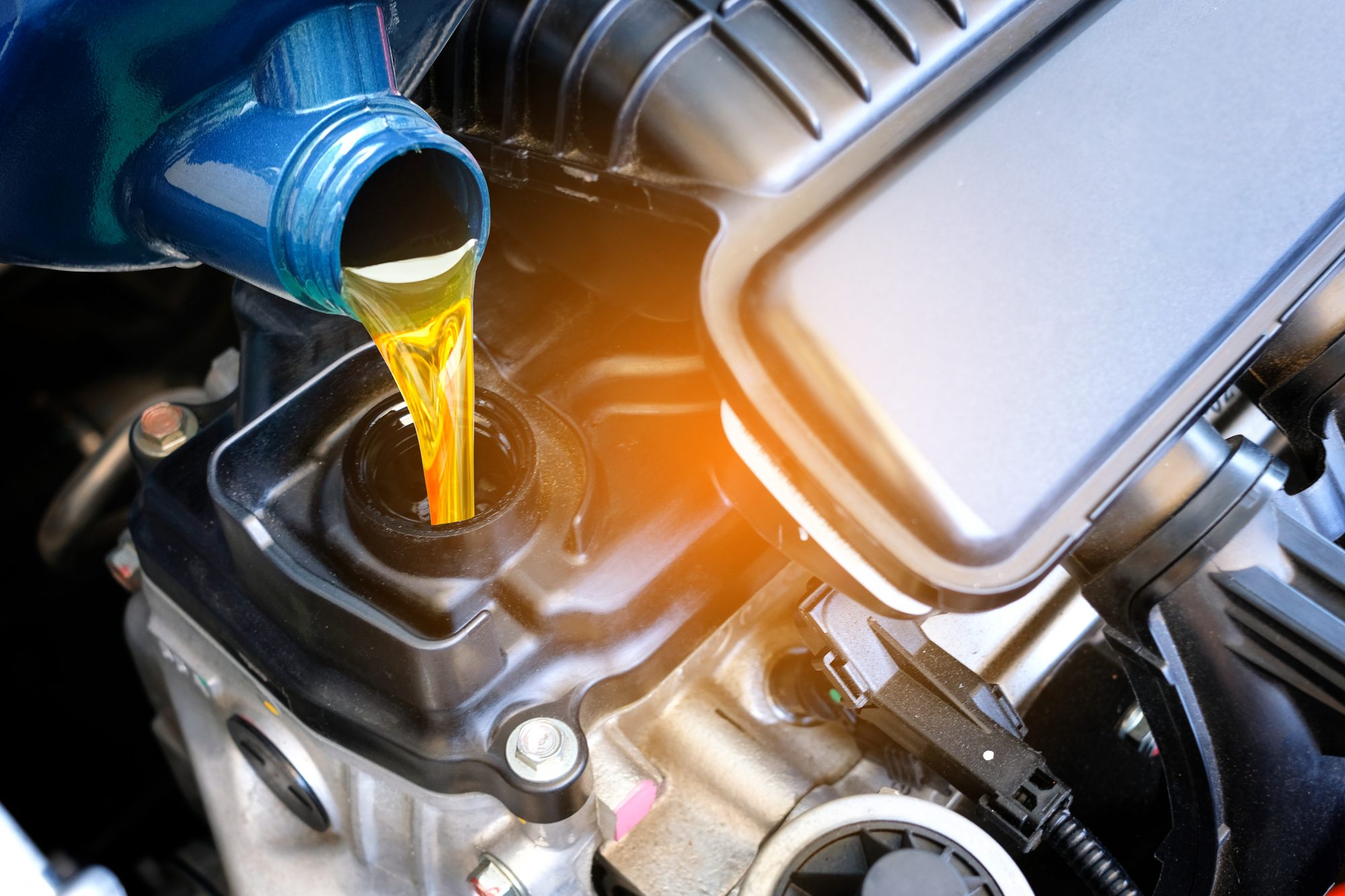Your guide to engine oil
- Engine oil is crucial for your car’s engine as it lubricates, cools and cleans to prevent damage.
- There are three main types: mineral, fully synthetic and part-synthetic, each with different properties.
- To maintain engine health you should check your oil level regularly and change it as part of your car’s service schedule.

Engine oil makes a car tick (well, not literally). Without it, the engine would suffer extensive damage and not be able to run properly. There’s a lot more to engine oil than many drivers realise, and you need to ensure you have the right engine oil for your car, as well as making sure to change it regularly.
In this guide, we’ll be covering everything you need to know about engine oil, including the types, grades, its function and how often you should change it.
The function of engine oil
Engine oil acts as a lubricant for the internal workings of your vehicle. When your car moves, the engine’s components move against each other and create friction. Oil reduces this friction and thus bypasses the harm that excessive friction can cause to an engine. This prevents damage to the engine, and decreases the rate at which wear and tear occurs in an engine.
Oil also acts as a coolant to reduce energy loss and boost engine efficiency. A lesser-known benefit of engine oil is its cleaning ability, preventing residue and deposits from clogging up the engine by carrying them away to the filter.
All of these traits combined means that engine oil improves the longevity, efficiency and safety of an engine.
Engine oil types
Engine oils come in three main types:
- Mineral oil: Extracted directly from the earth and minimally altered, mineral oil is cheaper to produce and purchase than its synthetic counterparts. These mineral oils are crude when first extracted and so will be refined to make them safe for use in a car. Mineral oil tends to be slightly thicker than other options, and will likely increase fuel consumption and require more frequent changes.
- Fully synthetic oil: Despite its name, fully synthetic is still derived from earth-extracted oil, but heavily altered by incorporating synthetic components and extracting impurities. This makes it easily modifiable to create a more desirable result, so it’s a popular choice with owners of high-performance vehicles. It also means the car will require less frequent oil changes.
- Part synthetic oil: Also known as semi-synthetic oil, this option sits in-between mineral and synthetic. This means you can enjoy the benefits of some synthetic modifications but still at a reasonable price, offering you a great balance between economy and performance.
Always take a look at your vehicle handbook when establishing which type of oil is best for your car.
Engine oil viscosity grades
The viscosity of an oil refers to how thick or thin its consistency is, and therefore how easily it flows through the engine.
But viscosity can alter with the temperature, and may differ depending if it’s hot or cold. For example, 5W30 means that the viscosity or thickness of the oil is 5 in cold weather (winter), and 30 at high temperatures. The less viscous / thick the oil is, the more easily it flows.
There are two main types of oils related to viscosity:
- Multigrade: A multigrade oil has been designed for contemporary cars, and for use across a wider temperature range, making it ideal for any season. Some examples of common multigrade oils you’ll come across include 5W30, 5W40 and 10W40.
- Monograde: A more limited choice for older vehicles, monograde oils are to be used within a smaller temperature range.
You should always check your vehicle handbook to pinpoint what viscosity of oil you should use.
Engine oil changes
Because of the vital role engine oil plays in the safety and efficiency of your vehicle, it’s recommended you check the oil levels every few weeks and especially before long car journeys.
It’s also wise to change your oil regularly as part of a service schedule – more often if you rack up high mileage for work or travel.
The benefits of regular checking and changing of oil include maintaining an energy-efficient engine, increasing longevity, avoiding damage and lowering vehicle emissions, so it’s worthwhile you keep on top of it.
—
Mr Tyre is the leading chain of autocentres for Central England. Established in 1971, we’ve been the go-to company for car servicing, maintenance, MOTs and multiple other essential services. Drop by one of our branches or book a service online today.


